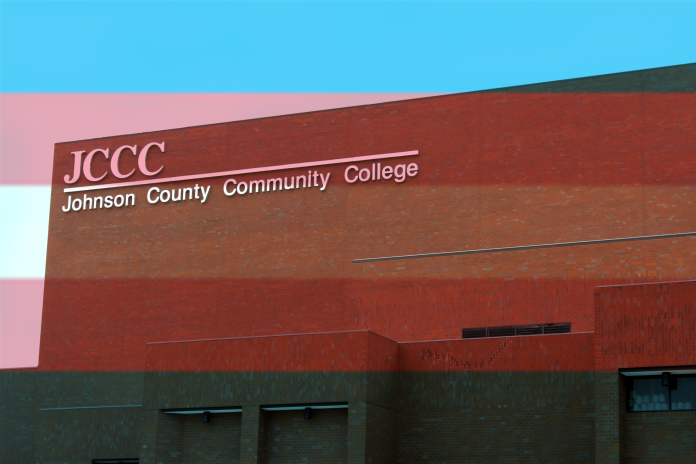Joseph Adams
News Editor
The college held three transgender awareness presentations on the 23rd, 24th and 25th of April. Ash Allee, professor, sociology, gave the last presentation on Thursday, April 25th.
Allee is a social worker, professor, queer activist and advocate and mentor for LGBTQ+ youth. He also founded support groups in Kansas City for transgender and gender non-conforming youth called Transformations KC.
Allee’s presentation gave a baseline on what it means to be transgender and to help others understand the perspective of trans people.
He described how he got into activism which for Allee, started at a young age.
“It started when I came out as gay in my high school when I was fifteen before I transitioned and got into activism with that,” Allee said. “I grew up southern Baptist until I got kicked out of my church and my leadership positions and I had all this passion and I didn’t know what to put it towards, so I put it towards activism. I realized I was the only person like me that existed around me, so I started seeking information for myself and developing curriculum, basically, to teach people how to act with me.”
Allee began the presentation by providing distinctions between someone’s sex assigned at birth, their gender identity, their gender expression and who they are attracted to. These distinctions are a spectrum and people can be on many different places on this spectrum. Considering sex assigned at birth, Allee noted that intersex people can often be overlooked which is important not to do. This spectrum is not static, it is fluid and can change over the course of someone’s lives as they grow as people.
Allee explained that someone who is trans has a gender identity and gender expression that differs from their sex assigned at birth, however trans people’s identities are not dependent upon physical appearance or medical procedures.
Allee moved on to talk about what it means to transition, and described how the process has physical aspects, like gender-affirming surgeries, legal aspects, like getting the correct gender on a driver’s license or birth certificate and social aspects like, coming out and being accepted by those in social spheres, like friends, family members and coworkers.
Language is an important tool for social change, and concerning gender related surgical interventions, the term changed from some very problematic ones, to gender-confirmation surgery to gender-affirmation surgery.
As Allee put it, “the trans community wants to use terms that move away from body parts.”
Navardo Bailey a student that attended the event, talked about how it is ironic that people gender inanimate objects like cars and boats, but it’s a struggle for some to use someone’s preferred pronoun.
“I thought about a lot of my friends looking at their cars and being like ‘this is my girl,’ and saying stuff like that, we are all human and we should be able to call people what they identify as,” Bailey said.
Throughout the presentation Allee stressed the importance of straying away from gendered language that is very common in most romantic languages. Cisgender people, or people that identify with their sex from birth, can help the trans community by stating their preferred pronouns when introducing themselves so that no one ever assumes anyone’s gender.
It is important for cisgender people to do that, according to Allee, because it will help foster societal change and can stop trans people from be misgendered which can be traumatic to trans people.
“If you want to be an ally, help to stop discrimination and exclusivity,” Allee said.
In a classroom setting students can be allies by helping their trans peers feel accepted.
“In the classroom, if [students] have trans peers, you know [make sure] that the professor is calling them by the right name and pronouns and being respectful. So just monitoring that and stepping in if someone does anything inappropriate.”
Allee continued by discussing the social changes that need to happen to be more inclusive to trans people. Increasing trans-inclusive spaces is important, a trans-inclusive space is a space that displays materials that reflect the trans community. This also includes having all gender restrooms.
“The way our society is set up, public bathrooms are not accessible for a lot of folks,” Allee said.
Allee discussed why it is important trans people feel safe, especially when violence against trans people is a real problem, especially trans women of color who experience the most violence. With the Trump administration banning trans people in the military, there are still massive steps to be taken to help trans people feel accepted and safe in our society.
Allee feels that events like these can raise awareness about the struggles that trans people face and can help to alter people’s perspectives.
“There is a lot of talk about people wanting to help and be an ally and just not knowing how to do it,” Allee said. “It is not always appropriate to come up to trans people and ask them all the questions that you have about how to be a good ally, so it is good to seek out events like these because that is the purpose of the event. Trans people have a platform to share their experiences, you can go and be educated and take that information out. It takes labor off people in their day to day life to answer some of these questions.”






















